Law Programmes 2024/25
Your guide to studying at one of London’s leading law schools



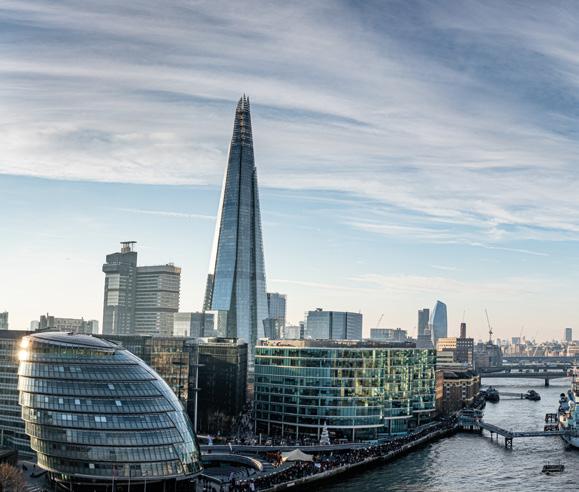
At The City Law School you will gain the skills and knowledge you need to excel in your chosen legal profession. A diverse community of barristers, solicitors, alumni, researchers and specialist educators will support you throughout your studies, united in their ambition to help you realise your potential.
Legal education broadens your understanding of society, justice and the rule of law. It challenges you to think critically, consider different perspectives and deepen your appreciation for legal principles and their impact on society. Throughout our 170-year history, The City Law School has been at the forefront of legal education. Our courses are designed to meet the needs of our students and the modern legal profession, both today and in the future.
The City Law School is situated in the heart of London, close to the courts, leading barristers’ chambers and law firms. Our students benefit from visiting guest lectures by distinguished judges, barristers, solicitors and a diverse alumni community.
We offer extensive opportunities to develop your professional skills. You will benefit from in-house legal clinics working with real clients and access to a mock courtroom complete with video-link room for vulnerable witness training. Our facilities have been designed to reflect developments in the legal sector with the addition of digital technology in courtrooms and the use of artificial intelligence.
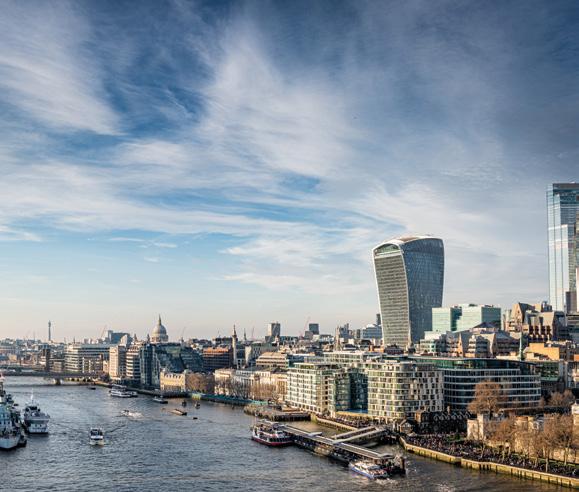

Welcome to The City Law School, the oldest law school preparing students for the professions in the UK. Our alumni includes Prime Ministers, political leaders, judges, barristers and solicitors and we are proud to see our graduates apply their learning in countries across the globe. We welcome you to our vibrant community.
Founded in 1852 to train students for the Bar, the Inns of Court School of Law joined City in 2001 and is now a full-service law school with students studying for a complete range of academic and professional qualifications.
Law threads through and sustains every aspect of modern life. To study law is to learn and understand something important about how the world works and how to change it. Without an understanding of the law we would be unable to fight discrimination, resolve conflict, protect freedom or advance justice. We need to understand how law is made, how it is applied, how it changes and what it costs. Even if you decide you do not want to be a lawyer, the study of law is a wonderful education. It provides transferrable skills of written and spoken analysis and argument, which you can apply in business, government, politics and industry. But if you do want to be a lawyer, we can support you towards fulfilling careers at the Bar, as a solicitor, as a paralegal, or in new emerging careers in consulting, tech and legal services management. City, University of London is the University for business, practice and the professions and we aim to be the law school for the whole legal services industry.
We are a caring law school. We are proud of all our students and we will work with you to develop your full potential, whatever your background. You will be taught by staff who are passionate about teaching and about the law: practitioners, researchers and scholars, many of whom advise courts and policy-makers worldwide. You will have the opportunity to see and practice legal skills throughout your time with us, from fun activities in our new City Law School Building, to mooting and law review, student societies, careers events and highprofile visiting speakers. We are particularly proud of our wide range of pro bono projects and our new, prize-winning City Community Legal Advice Centre (CLAC).
The world of the law is changing fast: climate change, artificial intelligence and political disruption increasingly affect us all. At The City Law School we aim to meet these challenges and give you the education, knowledge and skills to make progress in this dynamic world, for your own success and for the common good. We cannot wait for you to join us.
Professor Richard Ashcroft Dean, The City Law School

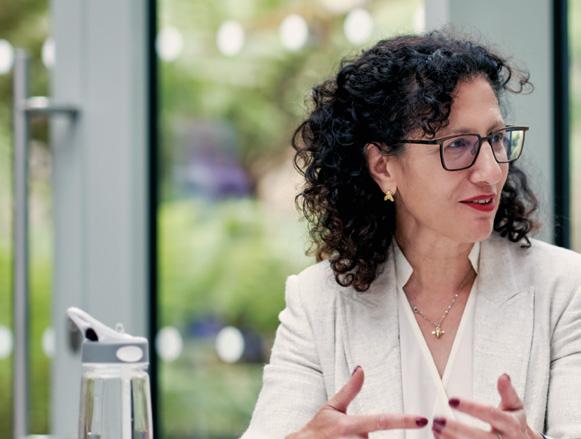
It is our aim to educate the next generation of socially responsible, industry-ready lawyers. As The City Law School is embedded at the heart of London, our students network with, volunteer for and are inspired by some of the country’s leading practitioners. You will benefit from opportunities to sharpen your skills working with real clients.


The full-service nature of our educational offering creates a diverse community of students and staff studying a stimulating variety of law subjects. Our experts lead research across a wide range of areas including business law, criminal law, human rights, intellectual property, information technology, maritime law and public law. Our academics often advise UK and international governments on policy matters.
The student Law Society at City is a thriving group responsible for organising a range of events and workshops, including a recent visit from Baroness Hale of Richmond, the first woman appointed as the UK’s most senior judge. The Law Society also organises the annual end-of-year Law Ball and co-ordinates contributions from students across all degree disciplines in the creation of the Law Society Student Journal. We look forward to welcoming you.
170-year history of pro bono activities
Prize-winning Community Legal Advice Centre
Stonewall Diversity Champion
Promoting social change through our Black British Students Scholarship
At The City Law School we embrace our role as a supporter and facilitator of social change. We are proud that a large proportion of our students are among the first in their families to receive a university education and that our diverse student cohort reflects its London location. We are committed to providing our communities with access to legal representation and recognise the benefits of pro bono and voluntary work to our students.
Widening participation in legal training
We work hard to create networking opportunities available to all our students, bringing you into contact with law firms, barrister chambers, alumni, researchers professionals and practitioners to widen your experience of the industry. One of our events recently led to 30 law school students from ethnic minorities receiving mentors from Irwin Mitchell, one of the UK’s largest law firms.
Making legal representation available
The City Law School has a 170-year history of participating in pro bono activities. Today we continue this tradition through our prizewinning Community Legal Advice Centre* (CLAC), which provides advice on areas of law unfunded by legal aid. Our students are able to shadow legal practitioners from law firms and chambers including Travers Smith, Taylor Wessing, Lewis Silkin, Irwin Mitchell, Matrix Chambers and 11KBW, gaining valuable realworld experience.
The City Law School recruits student volunteers for not-for-profit organisations including Citizens Advice, Law Centres Network, Vocalise, Leducate, AMICUS and Support Through Court, among others. Students who volunteer make a positive contribution to society while gaining valuable practical experience of the law, seeing how it is applied in a real-world environment. Other volunteering opportunities are also available:
– The Environmental Law Foundation (ELF) provides opportunities to work closely with solicitor-advocate Dr Paul Stookes in the Environmental Law Advice and Policy Clinic.
– The Free Representation Unit (FRU) offers students on the Bar Vocational Studies (BVS) chance to gain advocacy experience in social security and employment tribunals.
– The Refugee Law Clinic (RLC) was established in 2020 at the University of London’s ‘School of Advanced Study’ to provide pro bono legal advice for refugee clients. Some of our students are selected to participate each year.
Providing an equitable environment
As a caring law school we seek to address historical inequalities. We are committed advocates of the following programmes:
– Black British Students Scholarship. We offer a full-time, three year doctoral scholarship to a Black British researcher.
– Athena SWAN. We promote gender equality by supporting career progression and employability.
– Race Equality Charter. We promote racial equality by addressing the attainment gap.
– Stonewall Diversity Champion. We encourage inclusivity and celebrate our diverse student body.
* The City Law School’s Community Legal Advice Centre (CLAC) won the 2023 national award for Best New Pro Bono Activity in the LawWorks and Attorney General Student Pro Bono Awards.
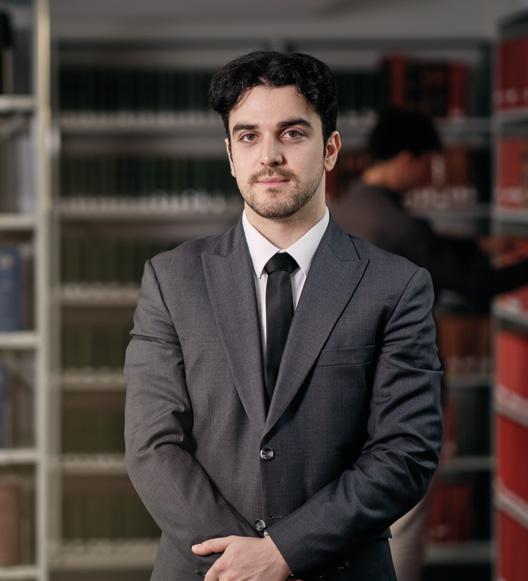
“The City Law School has offered me many opportunities, one of which is the micro-placement programme. It allows students to experience working in the real world and gives them an opportunity to determine if a job is the path they wish to take.”
Baktash Shah LLB Law student
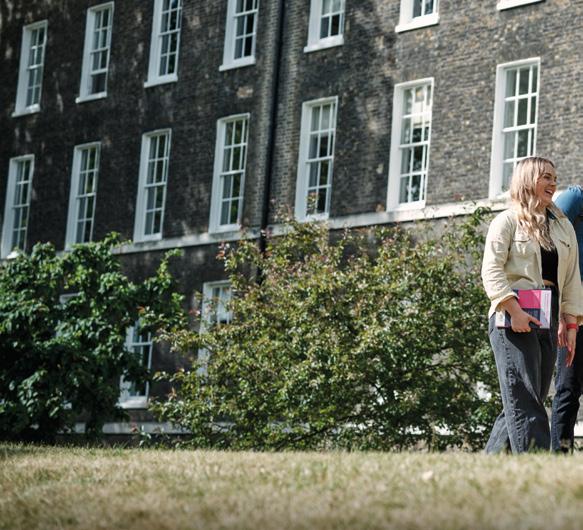
Our graduates are entering a 21st-century employment market. We aim to equip them with enduring knowledge and values, and the flexibility to respond to rapid change in the workplace and in the wider world of political, economic and technological challenges.
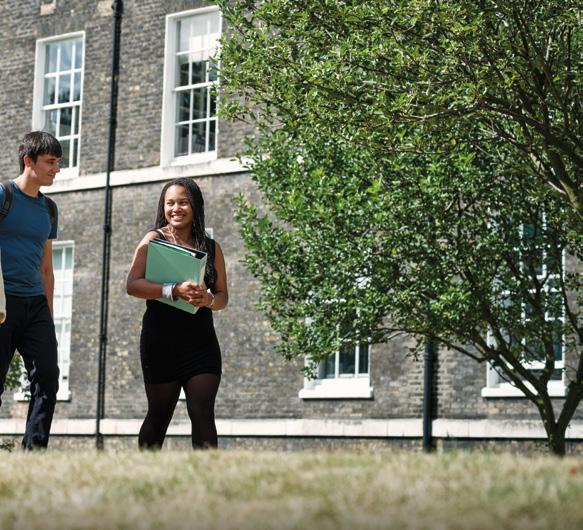
We involve practitioners directly in the delivery and development of our courses and many of our academic staff remain active in the profession, helping you to gain practical skills and knowledge relevant to today’s legal world.
We provide a stimulating variety of ways for students to engage with their course content. Our dedicated careers advice services help you find the path into law most suited to your interests, while our ‘Law in Real Life’ (Law IRL) programme further enhances your employability. Mooting and pro bono work hone your practical skills and enhance your understanding of the application of law in the real world. Our assessment methods are authentic. They promote integrity and ethical behaviour and test the skills you will need in employment or for further study.
It is our aim that you graduate from your course with confidence, knowledge and the skills you need to forge a fulfilling career in law.
Lawbore. Our award-winning legal research portal provides online access to reference materials on demand.
Future Solicitors Advisory Service (FSAS). Supports the career development of aspiring solicitors.
Pupillage Advisory Service supports (PAS). Supports the career development of aspiring barristers.
Award-winning Student Centre. Provides help and support around all aspects of student life.
We provide our students with lots of opportunities to develop the skills needed for a career in legal practice. We encourage you to engage with as many different services as possible.
Lawbore
An award-winning research portal providing on-demand access to reference materials.
Specialist library services
The City Law School students have access to a law library to cover their specialist needs, including collections dedicated to students undertaking our solicitor or Bar training courses, or studying our Master of Laws LLM courses.
Future Lawyer
An opportunity to practise your journalistic skills as students review events, interview alumni and provide a snapshot of life at The City Law School.
FSAS and PAS
Two dedicated careers services, helping students transition to their chosen professional paths by offering advice on CVs and applications for pupillage and solicitor placements from practitioners with direct experience in these areas. There are also opportunities for mock interviews and advocacy practice in readiness for the interview process.
Law In Real Life (Law IRL)
A programme that provides opportunities for students to develop their employability skills through legal work placements, court visits and mock trials.
London location
Our position at the heart of the City of London presents exciting opportunities for internships, mentoring and networking, which can prove beneficial to career progression.
Pro bono work and volunteering
Our award-winning Community Legal Advice Centre (CLAC) brings students and legal professionals together to provide access to services that are not supported by legal aid. Volunteering and shadowing provides a vital insight into the practice of law.
Mooting
Mooting is an effective way for students to develop the skills they need to be successful lawyers, including research and analysis, public speaking and advocacy. City mooters have a strong reputation, previously winning the FTB Kingsland Cup and Prize Moot, the Oxford International Intellectual Property Moot, the Landmark Judicial Review Moot and the Master’s Award for the best law school at the Worshipful Company of Arbitrators Arbitration Competition. The school also runs internal mooting competitions, with finals taking place at the Supreme Court.
A vibrant and caring place to study
At The City Law School we want our students to develop academically, but we also welcome you to our dynamic community.
Our community is fun-loving and sociable. Recent celebrations include the ‘Spring Thing’ and our ‘late late party’, complete with snowball simulators, basketball and chocolate marshmallow stalls.
Students who feel happy and safe are better able to concentrate, build relationships and thrive. Our tutors and academics are involved with the University Mental Health Charter, which focuses on supporting students and staff to achieve mental wellbeing and resilience. We are committed to giving our students emotional and pastoral support.
Our award-winning Student Centre is a one-stop-shop for student enquiries, from answering practical questions around finance, accommodation and travel, to course-based advice. If you are considering applying to City, or you’re already part of our community, the Student Centre exists to support you.
Our Centre for Language Studies offers courses designed to develop communication skills in foreign languages as well as cultural knowledge about how to live, work and be part of a culturally-diverse and global society. Language courses offered include: Arabic, French, German, Mandarin and Spanish.

“I chose City because I thought it offered the best Bar programme that aligned with my future goals. City also offers the chance to do a specialism alongside the BVS, which has allowed me to specialise in certain modules that I want to pursue in the future.”
Karway Kan Bar Vocational Studies (BVS) studentRead about Karway’s experience as a student on the Bar Vocational Studies (BVS) at City.
Undergraduate Law Degree (LLB)
Years to complete – 3
Other undergraduate degree
Years to complete – 3
Solicitors’ Practice Programme (SPP)
Years to complete – 1
Law Conversion Course (GDL or GE LLB)
Years to complete – 1–2
Solicitors Qualifying Exam 1
Solicitors Qualifying Exam 2
*can be taken at any point
2 years of qualifying work experience*
Years to complete – 2
Apply to the SRA* to become a registered solicitor
*can be obtained whilst studying and before SQE exams
*The Solicitors Regulation Authority is the regulatory body for solicitors in England and Wales.
Undergraduate Law Degree (LLB)
Years to complete – 3
Other undergraduate degree
Years to complete – 3
Bar Vocational Studies (BVS)
Years to complete – 1
Law Conversion Course (GDL or GE LLB)
Years to complete – 1–2
Call to the Bar*
*must happen before pupillage can commence
Pupillage –pupil barrister
Years to complete – 1
Apply for a tenancy in chambers or join the Employed Bar as a junior barrister/ practitioner


The City Law School comprises leading legal practitioners, researchers and academic staff. All course content is regularly reviewed to guarantee relevance and accuracy, and we involve our students in curriculum design through working with our Students’ Union, course representatives and wider cohorts. Our courses encourage the development of critical thinking, problem solving skills and professional ethics as well as intellectual curiosity.
Academic support
Every City law student is allocated an academic advisor on arrival who is available for one-toone support. We also offer close dissertation supervision. Our master’s students benefit from dissertation workshops and a structured approach to meetings with supervisors.
Employability
Our courses are designed to be flexible, current and to equip our students with practical skills that appeal to employers. Your course will bring you into contact with local legal and non-legal sector employers in a range of extracurricular activities, both on campus and online. You will have the opportunity to attend talks, workshops, recruitment events and a careers fair. You can also access careers guidance through our dedicated services. We will help you write an outstanding CV, and prepare for job applications, interviews and assessment days.
Our courses are delivered through a combination of lectures, tutorials and seminars. This faceto-face learning is underpinned by an online environment that allows you to access lecture notes, listen to podcasts and contact academic staff. This integrated approach ensures that you develop the analytical, research and self-study skills needed for future career success.
LLB Law. An undergraduate course providing a foundation in key areas of law. For non-law graduates wishing to convert to the legal profession, we offer the Graduate Diploma in Law (GDL) or the Graduate Entry LLB.
Bar Vocational Studies (BVS). A postgraduate course for aspiring barristers. Additional modules are available in order to achieve a master’s degree.
Solicitors’ Practice Programme (SPP). A postgraduate course for aspiring solicitors. Additional modules are available in order to achieve a master’s degree.
Master of Laws LLM. A postgraduate course allowing students to develop their expertise in specialist areas and enhance their career prospects.
PhD/MPhil. A postgraduate course that provides the opportunity to carry out legal research and contribute to professional knowledge in this constantly evolving field.

As the University for business, practice and the professions, preparing our students for the world of graduate employment is at the heart of what we do at The City Law School.

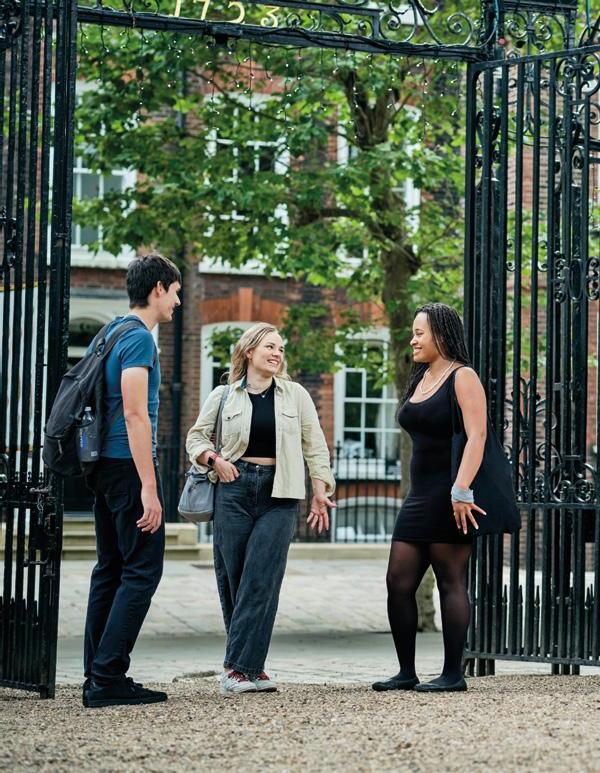
Our accredited, qualifying Law degree provides you with essential legal and academic skills. As an LLB Law student you will attend lectures from leading practitioners and academics, as well as business professionals. You will attend court to observe hearings, or shadow professionals as they provide pro bono advice in a real-world setting as part of our award-winning Community Legal Advice Centre (CLAC). You will have the opportunity to participate in a mock trial, getting first-hand experience of the courtroom, and develop critical skills sought by employers by engaging with our Law in Real Life (Law IRL) programme.
Learn from leading legal practitioners
Enhance your employability with our Law IRL programme

Shadow practitioners delivering pro bono advice
Graduates achieve roles with leading legal organisations
Watch our video about our new Law Building and finding a home at The City Law School.
The LLB (Hons) lets you explore the foundations and specialist fields of law. You develop legal skills in mooting, research and debating. Graduates satisfy the entry requirements of the professional stage of legal training.
UCAS code
L100
Duration
3 years
Entry requirements
Typical offers require one of the following:
A-level: ABB
UCAS tariff points: 128
IB: 31 points, including 4 in Higher Level English or 5 in Standard Level English
English language requirements
IELTS: 7 (including 6 in each component)
TOEFL (internet-based):
95 overall with no less than 24 in Writing and Reading, 22 in Listening and 25 in Speaking
The LLB provides you with the essential legal and academic skills to be successful in law and other professional careers. The degree gives you the knowledge and skills to go on to the Solicitors’ Practice Programme (SPP) or the Bar Vocational Studies (BVS) and become a solicitor or barrister. The LLB prepares you for future careers by equipping you with a range of essential transferable skills, widely sought by employers within an array of professions.
Course content
Year One
In year one you will study some of the core legal subjects common to all undergraduate law degrees:
– Administrative Law and Human Rights
– Constitutional Law
– Contract Law and Practice
Debates in the English Legal System
– Foundations of Contract Law
– Foundations of Criminal Law
– Foundations of Tort Law
– Studying Law and Employability.
Year Two
In year two you will study the remaining core legal subjects common to all undergraduate law degrees:
– Foundations of EU Law
– Foundations of Land Law
– Foundations of Trusts Law.
In addition, students choose one module focusing on valuable professional skills and four modules from a wide range of elective subjects to gain specialised knowledge. The range of subjects offered, which is subject to availability and demand, typically includes:
– Commercial Awareness and Risk
– Company Law
– Contemporary issues in EU Constitutional Law
– Family Law
– Foundations of Public International Law
– Further issues in Criminal Law
– Further issues in Tort Law
– Intellectual Property Law
– Mediation
– Immigration Law
– Introduction to Islamic Law
– Law Relating to Domestic Banking
– Law, Rights and Context
– Legal Career Enhancement and Employability Skills
– Legal Design
– Legal Ethics and Professional Responsibility
– Micro-placement
– Politics and Law
– Regulation of Leisure Industries
– Small Venture and Social Enterprise Law – The UK and the European Union.
Year Three
In your final year, you will choose eight modules from a wide range of elective subjects (all at 15-credits each) that allow you to study in a specialised field and gain important professional skills for your future career. The range of elective subjects offered, which is subject to availability and demand, typically includes several electives rarely offered at undergraduate level:
– Advanced issues in International Law
– Canadian Constitutional Law –Foundational Principles
– Canadian Law of Business Organisations
– Child Law
– Commercial Sales Law
– Comparative Constitutional Law
– Competition Law
– Constitutional Law of the USA –Foundational Principles
– Constitutional Law of the USA –Modern Controversies
– Criminal Justice
Cross Border Commercial Law
– Discrimination Law
– EU Law and the Global Legal Order
– Forensic Science and the Legal Process
– Movement of Products and People into and within the EU
– Further Issues in Equity
– Further Issues in Land Law
– Global Issues in Corporate Law
Human Rights Law in the UK
– Industry Projects
–
International Commercial Arbitration
– International and Comparative Intellectual Property Law
– International Banking Law
– International Criminal Law
– International Economic Law
– International Human Rights Law
Introduction to the Solicitors’ Professional Qualification
– Justice, Law and History
– Labour Law
– Law of Evidence – the Evidentia Implications of Criminal Investigation
– Law of Evidence: Safeguarding Reliability and Protecting Witnesses
– Law of the European Convention of Human Rights
– Law, Race and Colonialism
– Legal Technology and Project
– Legal Skills
– Maritime Law
– Media Law
– Medical Law and Bioethics
– Mentoring and Coaching for Leadership
– Micro-placements
– Pro bono Training
The Canadian Charter of Rights and Fundamental Freedoms.
There is also an opportunity to write a 30-credit dissertation if you meet certain specified pre-conditions. See website for more details.
In addition to the LLB Law degree we provide the opportunity for you to graduate with a degree in a specialised area of Law in one of the four pathways below. You can make this choice at the end of your second year.
If you enter a specialised pathway you will need to study at least four 15-credit modules related to this pathway in your final year.
The additional pathways and respective degree titles are:
– LLB Law with Commercial Law
– LLB Law with International Law
– LLB Law with Human Rights
LLB Law with Professional Practice.
The City Law School has established student exchange programmes with universities in Australia, France, Italy, the Netherlands, Singapore, Turkey and Spain. The programmes may provide the opportunity to spend part of your second year or all or part of your third year studying at one of these universities.

Law conversion courses are postgraduate programmes designed for individuals who decide to pursue a legal career after completing their undergraduate studies in a non-law discipline. These courses allow you to acquire the legal knowledge and skills necessary to qualify as a solicitor or barrister in England and Wales.

Our courses cover the foundational principles of law, including contract law, tort law, criminal law and public law. Alongside fundamental legal knowledge, you will develop essential legal skills such as research, analysis, problem-solving and advocacy.
Having completed a law conversion course you can progress to the next stage of legal training, typically the Solicitors’ Practice Programme (SPP) for aspiring solicitors or the Bar Vocational Studies (BVS) for aspiring barristers.
Over 45 years’ experience of teaching law conversion courses
Seamlessly continue onto our solicitor or barrister training programmes
Complete a one-year conversion course or a two-year law qualifying undergraduate degree
“I was motivated to pursue postgraduate study because I felt I could do more outside of my undergraduate degree and had always wanted to pursue a career in law. I am hoping to become a solicitor in the Entertainment and Sports sector.”
 Estelle Dekker Graduate Diploma in Law (GDL) student
Estelle Dekker Graduate Diploma in Law (GDL) student
Duration
1 year
Entry requirements
A degree (in any subject), of at least an upper second class honours (2:1) standard, conferred by a university in the United Kingdom or Republic of Ireland, or by the Council for National Academic Awards, or an approved degree conferred by a university outside the United Kingdom and Republic of Ireland, and a very good knowledge of the English language
English language requirements
IELTS: 7.0 overall with a minimum of 6.5 in writing and 6.0 in all other components.
International applicants
The rules governing admission to practise law vary from country to country. Before applying, students wishing to take the GDL as a step towards becoming a lawyer outside England and Wales are strongly advised to check with the appropriate body in the country in which they wish to qualify.
The GDL covers the seven core foundation subjects in law. Our GDL course has an unrivalled reputation within the profession for the quality of the education, the ability of our graduates and the preparation it provides you for a career as a solicitor or barrister.
The new Solicitors route provides useful preparation for any non-law graduate hoping to undertake the Solicitors Qualifying Examination (SQE). After the GDL, you may also decide to progress onto the Solicitors’ Practice Programme (SPP) for a full preparation for the SQE 1 and SQE 2.
Successful completion of this course also qualifies you to progress onto our Bar Vocational Studies (BVS) programme and complete the vocational stage of training for barristers in England and Wales.
GDL candidates study the seven core foundation subjects that would normally be covered during a qualifying law degree (i.e. LLB). The academic programme and examinations are largely at first degree level with some postgraduate elements and involve material that is normally studied by undergraduates over at least 18 months. The course is delivered by The City Law School’s own lecturers and by visiting lecturers from other prestigious universities.
The foundation subjects are: – Contract Law
– Criminal Law
– Equity and Trusts
– European Union Law*
– Land Law
– Public Law
– Tort Law
*You have a choice of taking a 30 credit module in European Union Law or, if you are intending to pursue a career as a solicitor, you might prefer to take a 15 credit module in European law alongside our Introduction to the Solicitors’ Professional Qualification module.
In addition to the foundation subjects, students take another academic law subject unique to City: Foundations of Law. This subject directs students’ attention towards the ethical challenges which lawyers might face in practice and to the values which characterise the profession.
Students have the option to convert their GDL to an LLB degree by taking further law modules after they have completed the GDL. This option is usually done in conjunction with students taking the Solicitors’ Practice Programme (SPP) or the Bar Vocational Studies (BVS) at The City Law School.
Successful completion of the GDL qualifies students to progress onto the Solicitors’ Practice Programme (SPP) (intending solicitors) or the Bar Vocational Studies (BVS) (intending barristers).
The GE LLB lets students explore the foundations and specialist fields of law. Students develop their legal skills in mooting, research and debating and graduates satisfy the entry requirements of the professional stage of legal training.
M110
Duration 2 years
Entry requirements
Typical offers require one of the following:
A Level: AAB
UCAS tarriff points: 360
IB: 35 points
English language requirements
IELTS: 6.5
TOEFL (internet-based):
100 – 105
GCSE: Grade B or equivalent in English Language
Students can gain skills and knowledge in the core legal subjects and learn about specialist areas of law. Students have the additional option of participating in mooting competitions to further strengthen their legal and debating skills
Course content
Year one
In year one, Graduate Entry LLB students study four of the seven core foundation subjects that are usually covered in an undergraduate law degree alongside a module on the English Legal System.
– Constitutional and Administrative Law
– Contract Law
– Criminal Law
– Tort Law.
Year two
In year two, students take the remaining three core subjects and have the opportunity to enhance their knowledge of particular areas of law by choosing six elective subjects:
– Equity and Trusts
– European Union Law
Land Law.
Year two elective modules are offered subject to availability and demand and typically include:
– Advanced Issues in International Law
– Canadian Constitutional Law –Foundational Principles
Canadian Law of Business Organisations
– Child Law
– Commercial Sales Law
– Competition Law
– Cross Border Commercial Law
– Global Issues in Corporate Law
– Human Rights Law in the UK
– International Banking Law
– International and Comparative Intellectual Property
– International Commercial Arbitration
– International Criminal Law
– International Economic Law
– International Human Rights Law
– Introduction to the Solicitors’ Professional Qualification
– Justice, Law and History
– Labour Law
Law of Evidence: the Evidential Implications of Criminal Investigation
– Law of Evidence: Safeguarding Reliability and Protecting Witnesses
– Law, Race and Colonialism
– Maritime Law
– Media Law
– Medical Law & Bioethics
– Movement of Products and People into and within the EU
– The Canadian Charter of Rights and Fundamental Freedoms.
You can also write a 30 credit dissertation. This is classed as a ‘double’ module so students choosing this option will be limited to choosing four additional elective modules only.
Career opportunities
Many graduates from the programme go on to take either the Solicitors’ Practice Programme (SPP) in order to practise as solicitors or the Bar Vocational Studies (BVS) programme to qualify as Barristers. A significant number of graduates go on to study for a research degree in law.
The programme gives you the ability to pursue any other career which would be open to law graduates. In the past graduates have gone into accountancy, banking, the Civil Service and in a range of NGOs.

Our LLM courses allow you to specialise in specific areas of law. A specialist qualification can enhance your employability in your chosen field, facilitate career progression or lead to opportunities to participate in relevant legal research, policy-making and advocacy work.
An LLM offers in-depth knowledge and a sophisticated understanding of legal concepts and principles. With a particular focus on international and comparative law, our LLM courses provide a global perspective on legal issues, beneficial for individuals interested in practicing law on an international scale or working for multinational companies.

Our flexible delivery methods are intended to make study accessible to candidates with other commitments, including work and family responsibilities.
Our LLM courses attract diverse candidates and provide valuable networking opportunities
Demonstrate commitment to success in the legal profession by developing specialist expertise
Flexible study modes available including on-campus, hybrid and online
“I was drawn to the flexibility of the LLM course at City, as I was in the early stages of my career and was not ready to commit to a single legal specialisation. My decision was also influenced by City’s reputation as a leading institution for training solicitors and barristers in the UK.”
Rayana Khalaf LLM Master of Laws graduate
The Master of Laws (LLM) is a flexible programme which enables students to develop a critical understanding of specialist or linked areas of the law, with seven specialisms to choose from.
Duration
Full-time: one year
Part-time: two years
Two intakes per year: September and January
Entry requirements
Applicants should normally hold an upper second class honours (2:1) degree in law or the equivalent from a recognised higher education institution.
Applicants with a degree in a subject other than law will be considered, but such a background may restrict the choice of modules where content is dependent on a prior knowledge of law.
English language requirements
IELTS: 7.0 overall with a minimum of 6.0 in all components.
You benefit from learning in small groups led by experienced academic staff who are leaders in their fields. Expert careers advice is available from personal tutors and City’s Careers Service. Each year, the School welcomes distinguished professionals, judges and government officials through its guest lecture programme, underlining the emphasis placed on the applicability of the LLM to current developments in the legal profession. You also have the opportunity to participate in The City Law School’s extensive pro bono activities.
By the end of the course, you will have acquired advanced knowledge in key areas of law and transferable skills essential to understanding and succeeding in the world of legal work and professional practice.
Scholarships are available to exceptional candidates.
The programme is designed to be flexible, to meet students’ differing study objectives and needs. It can be completed on a full-time or part-time basis. You can join the programme in either September or January. The programme is also delivered via blended and hybrid learning, offering students the flexibility to study on campus in London, join and participate in live and interactive classes online from anywhere in the world (noting that classes will be scheduled between 9am and 6pm UK time) or study via distance learning by watching recordings of classes and accessing online materials at any time. Whichever mode of study you chose you will receive a tailored and supportive learning experience.
When embarking on the LLM you have two course options. You may complete the Master of Laws (LLM) by choosing any five taught modules from the lists below and writing a dissertation, or you may obtain a Specialist Master of Laws (Specialist LLM) by completing at least two modules (of the five required) from one of the defined specialist areas listed below (as well as any three other modules from those listed) and a dissertation or research project in that area.
Please note: Not all modules will run each year. Modules are offered subject to availability and minimum numbers; where it is not possible to offer a module because of low student demand, you will be given the opportunity to write a dissertation around that subject area instead.
LLM in Criminal Litigation
– Advocacy in the Criminal Trial
– International Criminal Law: Crimes and Institutions
– Advocacy: Trial Stories
– Forensic Psychology for the Criminal Practitioner.
LLM in International Banking and Finance
– International Banking Law
– International Corporate Finance
– Corporate Law in a Global Context
– International Investment Law
– International Tax Law
– Money Laundering Law
– Project Finance and Law.
LLM in International Commercial Law
– International Banking Law
World Trade Law
– Admiralty Law
– Marine Insurance
– Carriage of Goods by Sea
– International Trade Law
– International Corporate Finance
– Corporate Law in a Global Context
– Project Finance and Law
– International Commercial Arbitration
Oil and Gas Law
– International Investment Law
– International Intellectual Property Law and Policy
– Merger Controls
– Contemporary Issues in Intellectual Property
– International Tax.
LLM in International Human Rights
– Public International Law
– International Criminal Law: Crimes and Institutions
– International Human Rights in Law and Practice
– Law and War
– Minorities and Indigenous Peoples in International Law.
LLM in International Litigation and Dispute Resolution
– Advocacy: Trial Stories
– Litigation Dispute Resolution Options
– Arbitration
– Mediation and Negotiation
International Commercial Arbitration.
LLM in Maritime Law
– Admiralty Law
Carriage of Goods by Sea
– International Trade Law
– Marine Insurance
– World Trade Law
– International Law of the Sea
– International Commercial Arbitration.
This course is academically demanding and beneficial in the shipping sectors, including the civil service or government, insurance companies, law firms, maritime regulators, ports and terminals, shipbrokers, and shipping companies.
LLM in Public International Law
– International Law of the Sea
– Public International Law
International Human Rights in Law and Practice
– Minorities and Indigenous Peoples in International Law
– International Criminal Law: Crimes and Institutions
– Law and War
– World Trade Law
– International Investment Law.
Career opportunities
The advantages you may gain from having an LLM may vary based on your personal career goals, but in a highly competitive job market, our LLM programmes provide you with a solid platform for establishing a successful career in general or specialist legal practice, business, finance, government, international organisations, NGOs, journalism, politics, education and research, among other professions.
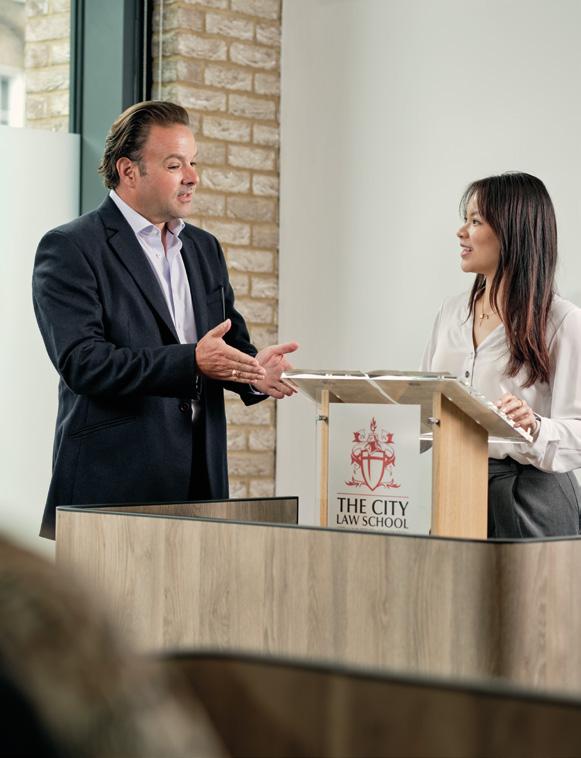
Aspiring solicitors in England and Wales must take the Solicitors Qualifying Examination (SQE). Our preparatory course, the Solicitors’ Practice Programme (SPP), meets the latest requirements and regulations for the SQE examination and is tailored to the examination content. Having studied our Solicitors’ Practice Programme, you will be prepared for both SQE1 and SQE2 whenever you decide to sit the exams.
Our SPP goes beyond examination preparation. It provides a solid foundation in legal principles, concepts and practice areas. You will benefit from studying with qualified solicitors, and have the opportunity to gain real-world experience through the provision of pro bono work in our dedicated Community Legal Advice Centre (CLAC).
Holding a preparatory degree such as the Solicitors’ Practice Programme (SPP) demonstrates your commitment and dedication to pursuing a legal career and can improve your prospects when seeking internships, training contracts, or employment opportunities.
The City Law School has trained barristers for over 170 years. Our Bar Vocational Studies (BVS) course is designed to prepare you for the Bar exam, a test known for its difficulty and comprehensive nature. Passing the Bar exam is necessary in order to become licensed to practice law in England and Wales. Our training course is tailored to support your learning and maximise your chances of passing the Bar.
Our innovative suite of Bar programmes combine face-to-face teaching with online learning. The Vocational Component of the course is accredited by the Bar Standards Board (BSB). Once you graduate, provided you complete the Inns qualifying sessions, you are qualified for Call to the Bar.
Throughout this course students learn to analyse complex legal issues, identify relevant facts, apply legal reasoning and form persuasive arguments, skills which underpin a successful career in law.
Learn from expert practitioners
Build valuable professional networks with peers from the legal profession
Gain real-world experience of conducting client interviews, legal research and drafting advice letters
Access our Future Solicitors Advisory Service (FSAS) for help securing workplace experience

The Vocational Component of the course is accredited by the Bar Standards Board
Build valuable professional networks with peers from the legal profession
Teaching and mentoring delivered by experienced barristers
Pupillage Advisory Service (PAS) supports the preparation of pupillage applications
“The City Law School’s staff and tutors are welcoming and supportive, the community is very open and there are a lot of truly incredible opportunities to get involved with. I am very happy with the decision I made and would highly recommend City for anyone considering doing an LLM with the BVS.”
 Antonia Hyacinth Bar Vocational Studies (BVS) student
Antonia Hyacinth Bar Vocational Studies (BVS) student
Our Solicitors’ Practice Programme is excellent preparation for becoming a solicitor and is designed to prepare you for the external Solicitors’ Qualifying Examination (SQE1 and SQE2).
Duration
Full-time: One year
Entry requirements
To enter the course, you must have:
A UK honours degree in law, normally with a classification of 2.1 or above; OR
A UK honours degree in a subject other than law, normally with a classification of 2:1 or above, AND a UK Graduate Diploma in Law (or equivalent graduate or postgraduate course that covers the necessary foundations of legal knowledge), normally with an average of at least 50%; OR An overseas degree (in any subject), normally with a classification equivalent to 2:1 or above, AND a UK Graduate Diploma in Law (or equivalent graduate or postgraduate course that covers the necessary foundations of legal knowledge), normally with an average of at least 50%.
English language requirements
IELTS: 7.5 or above with a minimum of 7.0 in each area.
The Solicitors’ Practice Programme is designed for those preparing for the Solicitors Qualifying Examination (SQE), the new route to qualifying as a solicitor in England and Wales. The programme has been carefully designed in collaboration with leading law firms who have outlined exactly what they seek in newly qualified solicitors.
Students will build on their existing legal knowledge and will acquire the knowledge and skills required both for the SQE assessments and for practising as a solicitor.
Training to be a solicitor is an exciting, yet challenging undertaking. The City Law School has been training solicitors for decades, many of whom have gone on to achieve prized positions in the legal world, so you can be assured that we have the ideal programme to help you excel in the SQE.
Over two 10-week terms, students will study material that will help prepare them to pass SQE1 and SQE2. Students may exit at this stage with a Postgraduate Diploma.
The Master of Laws (LLM) pathway provides an additional 5-week elective term and submission of a legal practice research project to deepen students’ understanding of an area of legal practice that is of particular interest.
This is a blended learning programme that is taught through face to face workshops supported by a range of online resources.
The City Law School has a long tradition of training solicitors. Many of our graduates have taken up in employment in prestigious firms. The programme has been designed with the benefit of advice from a range of solicitors’ firms and is tailored to equip students with the knowledge and skills that firms seek, especially commercial acumen.
Our Bar Vocational Studies programmes provide a rigorous and highly skills-focussed training that includes the required vocational qualification for Call to the Bar of England and Wales.
Duration
Full time: One year
Part-time: Two years
The minimum entry requirement is an undergraduate degree normally classified as uppersecond class honours (2:1) or above. This can be either a law degree or a non-law degree plus further graduate/ postgraduate study in Law and in either case must cover the seven foundations of legal knowledge and satisfy the Professional Statement competence. The Bar Standards Board can advise on non-standard qualifications.
Additional requirements laid down by the professional regulator are:
– Membership of one of the four Inns of Court
– Fluency in English at a minimum of 7.5 in each category of the IELTS test (or equivalent).
The four Inns of Court have well-established scholarship schemes that students can apply for.
This programme offers the choice of three different routes depending on whether you wish to study only the modules that are compulsory in order to be eligible for Call to the Bar of England and Wales, or to further enhance your employability and develop specialist knowledge and skills. The Postgraduate Diploma comprises the subjects that form the compulsory vocational qualification for Call to the Bar.
The Postgraduate Diploma with Specialism allows you to continue your studies with two elective modules in a specialist area of professional practice. You also have the option of obtaining an LLM by also completing a practice-focused dissertation or (for full-time students only) a clinical legal education module. This route aims to enhance your knowledge of substantive law and/or legal skills in relation to a particular area of professional practice.
The programme can be studied full-time over one academic year, or part-time over two academic years. Part-time students attend classes one day a week (1.5 days for students who choose the LLM route) in the first year and two days in the second year.
If you choose to complete the LLM or PG Dip (with specialism) you will need to complete two additional electives that are drawn from the following specialist areas of practice:
– Advanced Advocacy Skills
– Advanced Civil Practice
– Advanced Criminal Practice
– Corporate Law and Practice
– International Commercial Trade and Dispute Resolution
– Social Justice and Public Law
Please note that specialisms/ modules will only run if sufficient numbers of students choose them. Please visit the website for a full list of electives within these specialist areas.

If you are passionate about legal research, academia and specialised legal expertise, pursuing a PhD can lead to a rewarding and fulfilling career. A PhD can open the door to career advancement within legal organisations, think tanks, government bodies and nongovernmental organisations (NGOs). The knowledge you gain can be used to shape legal policies, draft legislation and contribute to policy-making that can have a profound impact on society.
With a PhD you are qualified to become a researcher, lecturer, or professor at a university or research institution. A PhD provides opportunities to mentor students, shape legal education and make intellectual contributions to the field.
Delve deep into the area of law that interests you the most
Conduct original research to become an authority in your field
Contribute to the development of legal theory and scholarship
Research centres at The City Law School include:

– Centre for Criminal Justice and Human Rights
– Centre for Law and Social Change
– The Critical Corporation Project
– The Digital Trade Research Group
– Institute for the Study of European Laws
– Intellectual Property Engagement Group
– International Law and Affairs Group
– Jean Monnet Chair in European Law
– Jean Monnet Chair in Law and Transatlantic Relations
– The Legal Practice Hub
– London Universities Maritime Law and Policy Research Group
– Minorities and Rights Research Group
– Violence and Society Centre
Duration
MPhil full-time: one year
minimum three years
maximum
PhD full-time: two years
minimum four years maximum
MPhil part-time: two years
minimum five years maximum PhD part-time: three years
minimum seven years
maximum
Entry requirements
Applicants should contact the School before making an application to find out if they meet our entry requirements and to check that we are able to support the proposed research.
Applicants should have a track record of high academic achievement, demonstrated by an LLB degree with an upper second class honours (2:1) classification (or international equivalent) and a Master’s degree in Law or a related discipline with a merit or equivalent. Applicants are expected to demonstrate a suitable aptitude to undertake a course of independent research.
English language requirements
IELTS: 7.0 overall with a minimum of 6.5 in the reading and writing components.
All students are initially registered for the MPhil degree. Students who wish to proceed to a PhD must upgrade within 12 months (18 months for part-time students).
Students are assigned two supervisors to support them throughout their research, with one of these supervisors taking primary responsibility for their progress.
The award of an MPhil or a PhD requires the submission of a thesis for examination at a viva voce (oral examination) by two examiners, at least one of whom is external to the University. A PhD thesis (up to 100,000 words) must be an original and substantial piece of work which makes a contribution to the relevant literature. An MPhil thesis (up to 50,000 words) must be an original work or a critical exposition of existing knowledge.
At The City Law School we offer research opportunities in a wide range of areas in a supportive and vibrant environment. We specialise in the following research clusters:
– EU Law
– Maritime Law and Transport – Intellectual Property and Information Technology
– Human Rights
– Public Law
– Socio-legal Studies
– Trade and Competition Law
– Commercial Law
– Public International Law
– Criminal Law/Criminal Justice.
Our PhD students are a vital part of the dynamic scholarly community at The City Law School who are supported throughout their research. The School runs a Training Programme for MPhil/PhD students focused on research skills and methodologies.
Research students also have the opportunity to present their work in progress at weekly seminars and the annual School Postgraduate Forum. The School also seeks to produce PhD graduates with strong employability skills. The Training Programme therefore gives students the opportunity to acquire both core research expertise and a range of transferable skills.
An MPhil/PhD can help students to pursue a range of career options. It shows employers that a student has been independently motivated to gain a prestigious and demanding qualification and expertise in a specific area of law.
In particular, there are opportunities in academia, civil service, corporations, international organisations, journalism, law enforcement agencies, law firms, NGOs, research institutes and think tanks.

LLB
Applications open in October 2023 and should be submitted by January 2024. Late applicants run the risk that the course may be full after the initial offers have been made. All applications must be received through the UCAS applications system: ucas.com
Visit: city.ac.uk/law/llb for more information.
In assessing your application, we will take into consideration your:
– A-level performance (actual or predicted)
– Personal statement and reasons for choice of course/career
– Further evidence of intellectual ability
Tutor references
– Relevant work experience (optional).
If you hold a qualification that differ from those specified in the entry requirements, please visit: city.ac.uk/prospective-students/ apply/entry-requirements
The rules governing admission to practise law vary from country to country. Before applying, applicants wishing to take the Graduate Diploma in Law (GDL) or Graduate Entry LLB (GE LLB) as a step towards becoming a lawyer outside England and Wales are strongly advised to check with the appropriate body in the country in which they wish to qualify/ practise that these courses are accepted.
In assessing your application, we will take into consideration your:
– Academic performance
– Further evidence of intellectual ability
– Personal statement
– Reasons for choice of courses/career
– Relevant work experience/activity (optional)
– References.
Graduate Diploma in Law (GDL)
Applications should be made online through the Central Applications Board: lawcabs.ac.uk. Applications can be made from early November each year and we recommend full applications are made by May for a September start.
Graduate Entry LLB (GE LLB)
Applications should be made online through the UCAS applications system: ucas.com. Applications open in October 2023 and should be submitted by January 2024. Late applicants run the risk that the course may be full after the initial offers have been made.
Master of Laws LLM courses
In assessing your application, we will take into consideration your:
– Academic performance
– Reasons for choice of courses/career
– Evidence of intellectual ability
– References
– Any relevant work experience/activity
September start
Applications for The City Law School’s Master of Laws (LLM) open in September each year for enrolment in the following September.
January start
Applications for the January entry of the Master of Laws (LLM) can be made from January for entry in the following January.
Apply online at: city.ac.uk/lmol
You are reminded that you must have completed a UK Law Degree or conversion course (such as the GDL or GE LLB) in order to meet the entry qualifications for these programmes.
Solicitors’ Practice Programme (SPP)
Applications open in October. Applications should be made online through the Central Applications Board: lawcabs.ac.uk
Please check our website for further details: city.ac.uk/spp
In considering your application, we will take the following into account:
– academic profile and achievement
strength of personal reasons for wishing to take the course
– evidence of your motivation to become a solicitor (work experience or training contract applications).
– references
Bar Vocational Studies (BVS)
Applications will open in October. You are encouraged to apply as early as possible as this course fills up quickly. Apply online at city.ac.uk/lbvs
In assessing your application, we will take into consideration your:
– Degree performance (actual or predicted) and other academic qualifications
Evidence of intellectual ability
– Interpersonal skills
– Advocacy and public speaking skills/ experience
– Commitment to the practice of the law
– English language proficiency
– References.
You are encouraged to contact our Postgraduate Research Team before making an application to find out if we are able to support your proposed research project. Please note that you will need to complete a detailed research proposal as part of your application.
For details on how to do this and how to apply please visit: city.ac.uk/lrds
Wednesday 08 November 2023
Wednesday 07 February 2024
Wednesday 05 June 2024
Visit city.ac.uk/pgevents to register your interest.
The City Law School Scholarships
The City Law School is firmly committed to a generous programme of scholarships awarded on the basis of academic excellence. Our scholarships range in value and include both partial and full fee waiver awards. They are open to students across all of our programmes and both home and international students are strongly encouraged to apply. An application form and further details can be found on our website.
Through our scholarships, we celebrate academic achievement and we support outstanding students who choose to study with us. While the primary consideration for the award of scholarships is academic excellence, the School fully recognises that judging past academic performance must include consideration of the wider circumstances of an applicant’s achievements. The Law School’s Scholarships Committee looks carefully at the full range of qualities possessed by each individual and it closely considers the wider context in which academic excellence has been achieved. We also believe that it is important to value the potential of applicants to make a positive contribution to the Law School, the legal professions, and the broader community when we evaluate applications. At The City Law School, scholarships are central to our ongoing commitment to excellence in legal education.
Please visit the relevant course web page to view course fees for 2024/25. Some courses are also eligible for postgraduate loan funding via the government’s Postgraduate Loan Scheme. We also offer an extensive scholarship programme, for more information about the scholarships available for our postgraduate programmes, please visit: city.ac.uk/ prospective-students/finance/funding
The information in this prospectus is, to the best of our knowledge, accurate and at the time of going to print. However, changes can occur on the interval between publication and the academic year to which the prospectus relates. Applicants should visit city.ac.uk for further information and updates.
CityNav







City, University of London is an independent member institution of the University of London. Established by Royal Charter in 1836, the University of London consists of 17 independent member institutions with outstanding global reputations and several prestigious central academic bodies and activities.